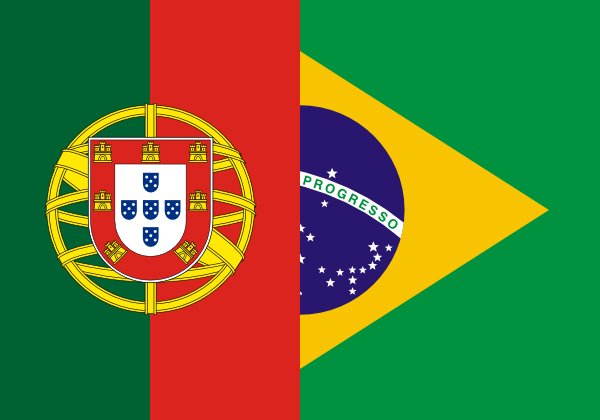When the phrase “official translation” or “official translator” is mentioned by an individual who is not him or herself a language professional, very often that person is thinking about hiring someone who is officially qualified, in other words, holds some form of qualification enabling the translator to undertake that task. This is in contrast to the individual who claims to be a translator but has no formal training or education in the language or languages from which he or she translates or indeed any training or education in the task of translation. Nonetheless, many who think of an official translator in the sense mentioned above, often omit the concept of training from the process of translation, focusing solely on the perceived linguistic ability of the individual.
To a language professional, or indeed anyone who has experienced the formalities of dealings with overseas jurisdictions, whether in a professional or personal capacity, an official translation is one which is required for an official purpose either to be tendered in evidence or a personal document like a certified marriage certificate to be submitted to some authority. By this we mean required by a national or state body, educational establishment or court, or even a body such as an insurer. Essentially, it is a translation carried out by a linguist with a particular level of qualification and accreditation that meets the requirements of the authority that has requested the translation.
It goes without saying for the most part that a translator who has a form of accreditation is likely to hold a formal qualification such as a degree or degree level qualification in his or her languages and/or a degree in a field relevant to the field in which he or she translates. Here this is typically a law degree. Becoming accredited by an institution in any sector implies a specific level of academic and/or professional achievement in order to receive that accreditation.
To explain the concept of official translator or translation it may be useful to compare what this means in a jurisdiction such as that of England and Wales with that of other countries, other EU ones in particular. In doing this the expressions “sworn translation” and “sworn translator” will no doubt seem familiar to many readers. In French, the most commonly found equivalent of these are quite literally “traduction assermentée” and “traducteur assermenté”. When searched for, other variants – agré (approved), official (official) and certifié (certified) - will return relevant results although many, if not most, will have references to the translator or translation being “assermenté(e)”, literally “sworn”. In other EU civil jurisdictions like Spain reference is typically made to “traducciones juradas”, namely sworn translations.
To a language professional, or indeed anyone who has experienced the formalities of dealings with overseas jurisdictions, whether in a professional or personal capacity, an official translation is one which is required for an official purpose either to be tendered in evidence or a personal document like a certified marriage certificate to be submitted to some authority. By this we mean required by a national or state body, educational establishment or court, or even a body such as an insurer. Essentially, it is a translation carried out by a linguist with a particular level of qualification and accreditation that meets the requirements of the authority that has requested the translation.
It goes without saying for the most part that a translator who has a form of accreditation is likely to hold a formal qualification such as a degree or degree level qualification in his or her languages and/or a degree in a field relevant to the field in which he or she translates. Here this is typically a law degree. Becoming accredited by an institution in any sector implies a specific level of academic and/or professional achievement in order to receive that accreditation.
To explain the concept of official translator or translation it may be useful to compare what this means in a jurisdiction such as that of England and Wales with that of other countries, other EU ones in particular. In doing this the expressions “sworn translation” and “sworn translator” will no doubt seem familiar to many readers. In French, the most commonly found equivalent of these are quite literally “traduction assermentée” and “traducteur assermenté”. When searched for, other variants – agré (approved), official (official) and certifié (certified) - will return relevant results although many, if not most, will have references to the translator or translation being “assermenté(e)”, literally “sworn”. In other EU civil jurisdictions like Spain reference is typically made to “traducciones juradas”, namely sworn translations.
This common terminology and form of reference to being sworn implies an entirely different level of formality compared to the UK where no reference to being sworn is ever made when considering translation services. In the UK an individual swears or takes an oath concerning the translated document and may involve either a signed affidavit before a solicitor or swearing on oath before a commissioner of oaths. Furthermore, the act of swearing in this context is also considered in the context of notaries. All of the aforementioned professionals can be and are frequently resorted to by official or certified translators in the UK when a higher level of formality in respect of a translation is required.
Nonetheless, the term certified translation is that most commonly referred to on British shores. Like its EU counterparts, the term reflects the process of certifying or making the translation sufficiently official to be accepted by the requesting authority. However, we can now see the primary difference between a sworn and a certified translation in relation to official translations within the English legal system. In countries like France, Portugal or Italy, translators become sworn by a court and are in turn authorised to provide an official translation even holding an official stamp to provide the literal seal of approval or at the very least confirmation by the translator him or herself that the work is up to standard. No approval, revision or checking of any sort is performed by the court.
Conversely, there is no such procedure or formality in the UK. The translator holding sufficient qualification refers to the accuracy of his or her work by means of a signed certificate or simply a certifying letter and may do so owing to his or her accreditation by an official UK body. In the UK the Chartered Institute of Linguists and the Institute of Translators and Interpreters are the only independent accrediting bodies for linguists. Again, the translator who is a legal document specialist, or sometimes the agency which has hired him or her, certifies the accuracy of the work. No stamp or seal is ever provided unless an official body or authority requests the higher level of certification that requires swearing before a legal professional.
Whether these variations in procedure, and certainly formality, are indicative of the legal and/or social systems in the respective jurisdictions or whether the differences reflect a difference in attitude generally, be it social, cultural or professional, therein is a matter for further discussion.
Nonetheless, the term certified translation is that most commonly referred to on British shores. Like its EU counterparts, the term reflects the process of certifying or making the translation sufficiently official to be accepted by the requesting authority. However, we can now see the primary difference between a sworn and a certified translation in relation to official translations within the English legal system. In countries like France, Portugal or Italy, translators become sworn by a court and are in turn authorised to provide an official translation even holding an official stamp to provide the literal seal of approval or at the very least confirmation by the translator him or herself that the work is up to standard. No approval, revision or checking of any sort is performed by the court.
Conversely, there is no such procedure or formality in the UK. The translator holding sufficient qualification refers to the accuracy of his or her work by means of a signed certificate or simply a certifying letter and may do so owing to his or her accreditation by an official UK body. In the UK the Chartered Institute of Linguists and the Institute of Translators and Interpreters are the only independent accrediting bodies for linguists. Again, the translator who is a legal document specialist, or sometimes the agency which has hired him or her, certifies the accuracy of the work. No stamp or seal is ever provided unless an official body or authority requests the higher level of certification that requires swearing before a legal professional.
Whether these variations in procedure, and certainly formality, are indicative of the legal and/or social systems in the respective jurisdictions or whether the differences reflect a difference in attitude generally, be it social, cultural or professional, therein is a matter for further discussion.




